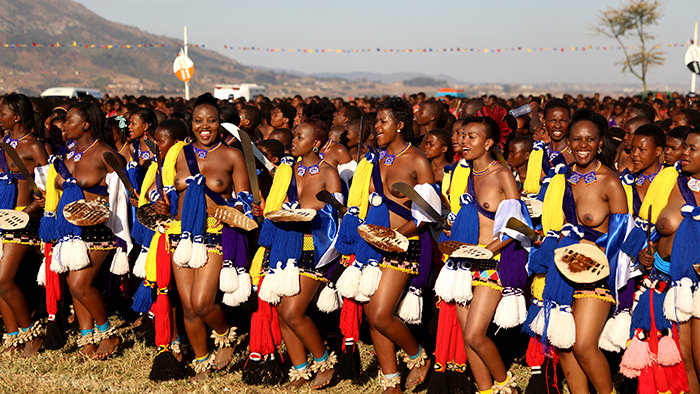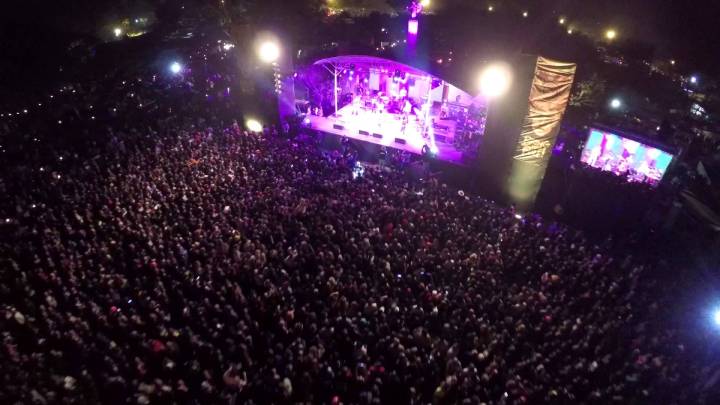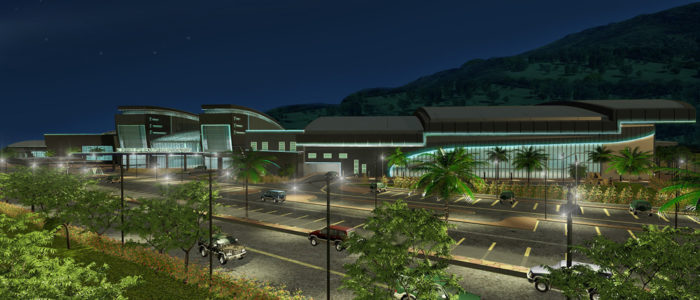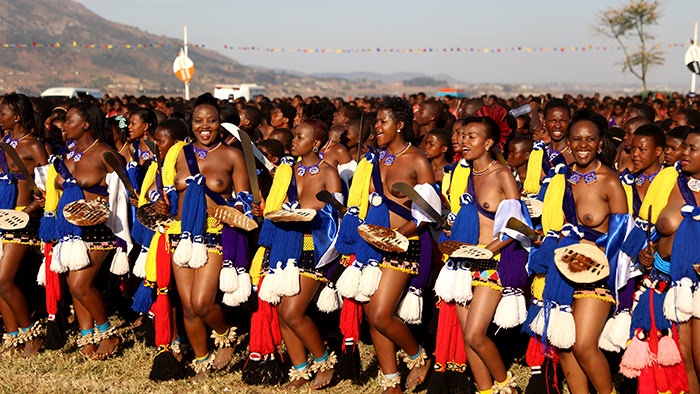By Bongani Dube (@djtizalami)
Swaziland an events destination
The Kingdom of Swaziland, which is renowned for producing such regionally-acclaimed music artists as Sands of Tigi fame, Sipho Makhabane, Shongwe and Khuphuka, Nomalungelo, Ncandweni Christ Ambassadors, Bholoja, Big Dreamz, among many others, is fast becoming a regional entertainment hub thanks to a gradually growing culture of events.
South Africa is the biggest destination in the events industry, inclusive of those that are entertainment-focused, in the region.
However, Swaziland is fast charting her course towards being an events powerhouse what with the proliferation of these on the country’s entertainment and cultural calendar: The Buganu/Marula Festival in February; the Swaziland International Comedy Festival in April, the MTN Bushfire Festival in May; the HipNotik in July, the Biggest Braai in July; the newly-established MTN SWAMA Music Awards in August; the Swazi Rally in August; Umhlanga/Reed Dance in August; the Spring Bash in August, the Swaziland International Trade Fair in September, the Philani MaSwati Airshow in September, the Lumankelenkele Lubombo Festival of the Arts in October, the Summer Showdown in October/November, the biennial National Arts & Culture Awards in December, the sacred Incwala ceremony in December, the multiple cross over parties, among other major events.

One event that is notably both missing from the list and missed by many, is the then Simunye Fun Fair, which was last held in February 2015. The event, according to Simunye Country Club, was discontinued due to lack of sponsorship, robbing the Lubombo region one of its prime event of a national scale. One only but hopes that the Royal Swaziland Sugar Corporation will reconsider bringing back this event, which attracted revelers from Mozambique, South Africa’s Mpumalanga province, and Swaziland.

However, as much as most of these events are largely successful (even though some still have a lot to learn and employ), there is a lot that happens behind the scenes in the planning and presentation of these.
An event planner’s guide
Events are a great source of revenue to any country if they are well thought out, planned, and executed. Thinking out and planning have been confused to mean the same, yet the former means advancing a business case or a value proposition that takes into account such questions as why the vent? what high-level objectives would be achieved? and what value would be achieved from hosting such an event? Hence it is imperative to do both a cost-benefit-analysis and a benefits realization management plan when drawing up such a proposition before funders/sponsors can decide whether or not to bankroll the idea.

Well thought out events easily get a buy in from targeted publics/stakeholders, but that on its own cannot be a guarantee for event success. Significant time should then be expended on comprehensive planning – which actually should be iterative (on-going planning that involves updating, revision, etc. as parts of the plan are being implemented). The planning should, therefore, be responsive to such questions as who the stakeholders of the event are (to a point of creating a stakeholder engagement matrix), what the scope of the event is – including stating clearly what is outside the scope so as to avoid what is known in the events and projects management industry as ‘scope creep’ (a scope management plan), what needs to be communicated before and during the event, how it will be communicated (a communications management plan), what risks could arise and how these could be mitigated (risk management plan), what costs would be incurred (a cost management plan inclusive of the budget), what human resources would be needed, and a description of each member’s role in the larger scheme of things (a human resources management plan), what quality benchmarks should be met (quality management plan), how procurement would be done (a procurement management plan), and how all these plans will be integrated (an integration management plan).
Sadly, most promoters, organisations, and government tend to overlook the value event managers or event planners would add to their events.
Formalising events industry key
In South Africa, public (government entities) and private organisations strongly appreciate the value of using event management companies in the carrying out of their events regardless of the size of the event. This has made the events management industry in that country thrive as it now employs a significant number of youths, as well as volunteers (for big events).
To understand the importance of events, a whole expo dedicated to events (with a bias towards tourism and travel) dubbed Meetings Africa takes place annually in Johannesburg, where Swaziland is always represented by the Swaziland Tourism Authority.
In fact, the fact that the kingdom is currently building an international convention centre in Ezulwini, which is expected to be finished in the next three years, calls for the escalation of events (inclusive of event management) into a formal industry worth promoting and supporting. This will also ensure that Event Management graduates produced by Limkokwing University of Creative Technology annually are absorbed into the events sector. Perhaps it’s high time organisations (including government) are compelled to show proof that they use local event management companies or experts in the planning and hosting of their several events going forward so as to ensure that our graduates from LUCT get to apply and improve their skills.

On the other hand, such formal acceptance of events as a formal industry in Swaziland would present opportunities for the same graduates to form own event management companies, something which resonates with government’s new drive for youth entrepreneurship as advanced by SEDCO through their Graduates Enterprise Program among other initiatives.


Dankie
LikeLike
Profound, a pleasure to read. I am an adamant supporter of formalising the Events Management industry.
Thank you for this article my brother. Kindly write more about this.
LikeLike